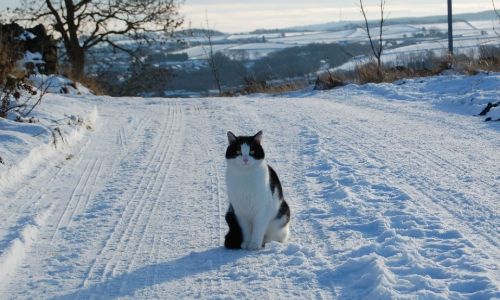Meet Andrew: Veterinary Surgeon
"Join Vet Sustain. Join the Green Party. Read the papers. Follow the science and be the planet's advocate"
Andrew Prentis
When did you first know that you wanted to be a vet?
As a child I'd always loved nature and natural history and at school I studied biology as soon as I could. When I realised that medicine was an option, I chose to be a vet.
Can you describe your role?
Trying to get the RCVS and BVA to recognise the key role that vets have in influencing the carbon footprint of both the farm animal and pet businesses, declare a Climate Emergency and then actually do something about it. In a nutshell, I'm giving some scientific advice to the Green Party; I'm the environmental advisor to the 99% Organisation; and I'm an activist Instagrammer @the_environmental_worrier.
What is the most challenging part of your job?
Keeping up the momentum and staying positive as we unearth ever more serious environmental threats all around us.
What’s your favourite part of your job?
Right now? Using my science brain to be able to crunch some of the data and present it in a way that might be more digestible to non-scientists. Feeling that I might be contributing something to the battle against the massive existential threat that we all face.
Do you have any tips for achieving a good work-life balance?
Vets tend to put in long hours and take their job very seriously. You have to realise it is a choice, and then find a way to enjoy the work and the people you work with. You don't have to like everything about it. Celebrate the bits you love and then try to accept the rest for what it is, remembering that it's an honour and a privilege to help treat these animals who have no way to do it for themselves.
What do you feel are the major opportunities to drive sustainability in the veterinary sector?
Wherever you possibly can, test before treatment. We are clinicians not medicines sales people. Resist the temptation to hand out parasite treatments where there is no diagnosis or clinical suspicion: you know that many of these products are having a terrible effect on our ecosystem.
Both pet practice and the food animal business have very significant carbon footprints. These may not be sustainable in their current form if the environment continues to degrade and the human population continues to rise as predicted. Recognise the human benefits, but make it your business to be aware of the planetary cost, and discuss this with your clients. Our work will change in the decades to come.
How do veterinary professionals currently help to drive sustainability?
Small daily waste reductions, energy savings and talking about the bigger environmental issues to the people we work with and the clients who come to us. And joining Vet Sustain, of course.
What are your top tips for veterinary professionals wishing to take the first steps to drive sustainability in their roles?
Join Vet Sustain. Join the Green Party. Read the papers, follow the science and be the planet's advocate. Be the best scientist that your clients know.
If you could wave a magic wand and make one improvement to drive the sustainability impact of the veterinary profession, what would it be?
Develop a realistic planetary carbon cost for our workplaces, the work we do and the companies whose products we buy and sell, and factor that into the decisions we make every day.
Meet the people who embed sustainability into their life and work
From the veterinary nurses who advise on responsible antibiotic use and lead welfare campaigns, to the practice managers who actively reduce the environmental footprint of their workplace — we recognise the scale of your impact.

